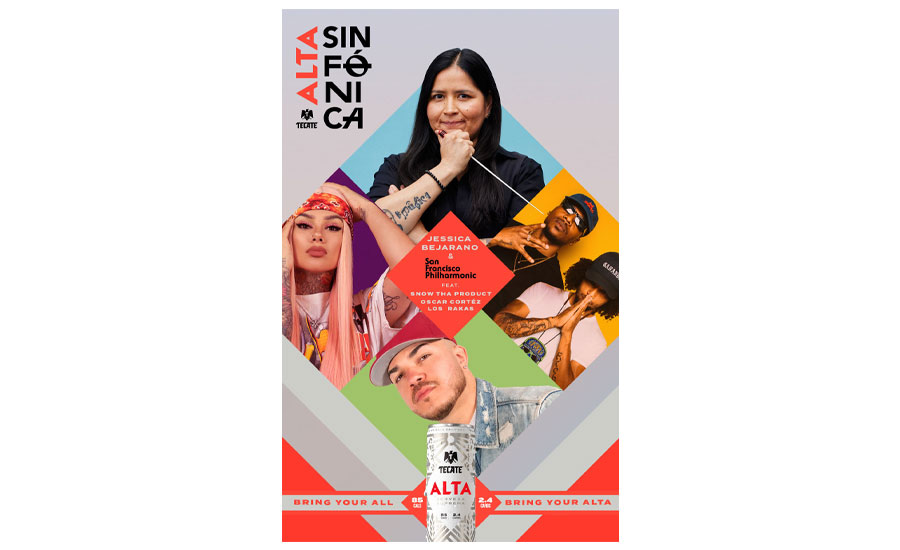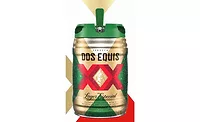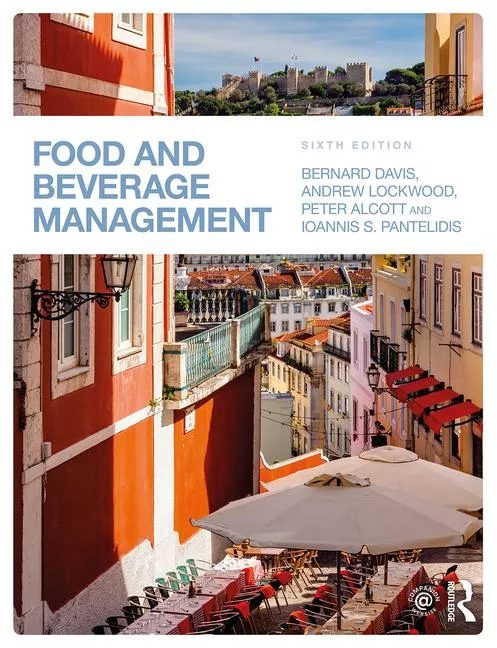2023 Beer Report | Imported beer appeals to consumers’ lavish interests
Inflation, potential recession could halt beer segment’s performance

Image courtesy of Constellation Brands
The 2022 film “Mrs. Harris Goes to Paris” gives audiences a comical, historical peek into the world of haute couture when cleaning lady Mrs. Ada Harris travels to Paris and ends up at the Dior 10th anniversary collection showing. The happenstance sees Mrs. Harris helping the high fashion brand modernize and bring it back to profitability. Mrs. Harris’ interest with haute couture is a more lavish example of how premiumization influences consumers’ purchase patterns ― patterns that have helped the performance of the imported beer market.
“Beer imports increased in 2022 as the premiumization trend drew consumers to foreign beers, which are often perceived to be of higher quality,” says Grace Wood, senior analyst at New York-based IBISWorld. “An inflated U.S. dollar has made foreign beers relatively more affordable for domestic consumers, boosting imports.”
According to data from Chicago-based Information Resources Inc. (IRI), imported beer sales totaled more than $9.8 billion, an increase of 6.6%, for the 52 weeks ending Jan. 1, in total U.S. multi-outlets. Case sales also showed a slight increase, up 1.6%.
Jon Berg, vice president of Beverage Alcohol Thought Leadership at Chicago-based NielsenIQ, adds that the affordability of this premiumization associated with imported has driven much of the segment’s surge.
Although premiumization is driving imported beer sales, IBISWorld’s Wood notes that the beer segment is eager to innovate to entice consumers.
“Imported beers are also innovating with new fruit flavors to capitalize on this consumer trend,” she says.
Like many other beer segments, betterment also is influencing imported beers, notes Scott Scanlon, executive vice president of BevAl Vertical at Information Resources Inc. (IRI), Chicago.
An example of this is Modelo Oro. Last spring, Modelo, a brand of Constellation Brands, Victor, N.Y., tested the premium light beer brand in in Charlotte, N.C.; Fresno, Calif., and Houston, Texas. The brand extension now is set to expand nationally, Scanlon notes.
“Modelo Oro is launching nationally in the spring of 2023, focused on low-cal, low carb premium light beer,” Scanlon says.
Brian Sudano, managing partner at New York-based Beverage Marketing Corporation (BMC), echoes similar sentiments in terms of low-calorie innovations taking place across imported beers.
“Innovation within imported beer is leaning into image and low carb/calorie trend occurring with Heineken Silver, Corona Zero and Modelo Oro,” Sudano explains.

Image courtesy of Heineken USA
Leading the charge
Analysts across note that much of the positive performance within imported beers can be attributed to Mexican import beers.
“Mexican imports continue to drive all the growth and accounts for nearly 80% of all imports,” BMC’s Sudano says. “These imports address the growing size and influence of the Mexican American consumer.”
Mexican beer brands have highlighted the importance of Mexican Americans through programs. For example, Tecate Alta, a brand of White Plains, N.Y.-based HEINEKEN USA, partnered with the San Francisco Philharmonic last fall to create ALTA Sinfónica, a live concert that blends hip-hop, regional Mexican and dancehall sounds and uses music to highlight the rich culture that is synonymous with the Hispanic community, the brand noted.
ALTA Sinfónica was led by Mexican-American conductor and founder of the San Francisco Philharmonic, Jessica Bejarano, and featured collaborations with some of today’s hottest Latin artists including Snow Tha Product, Oscar Cortez and Los Rakas.
“As with any other cultural expression, we believe music has no borders. To demonstrate the beauty of cross-cultural convergence, the San Francisco Philharmonic will merge with urban artists to create a whole new musical expression. ALTA Sinfónica showcases the beauty and power of what is possible when different ideas and identities come together to bring their all,” said Tecate Senior Brand Director Oscar Martinez in a statement at the time of the announcement. “Tecate ALTA is all about blurring lines, welcoming unique perspectives and embracing what makes us different.”
Although Mexican import beers resonate with Mexican American consumers, IRI’s Scanlon highlights that beer consumers in general increasingly are turning to these brews.
“Mexican imports continue to drive the import segment’s growth,” he says. “While large flagship brands like Modelo Especial and Corona Extra are strong with Hispanic consumers and remain strong they are seeing growth with general market consumers as the brands become more mainstream.”
Also harkening Mexican imports status in the United States, IBISWorld’s Wood notes that these brews increased substantially in 2022. Among the most popular imported beer brands, Wood’s notes that Mexico-produced Corona and Modelo, both entities of Constellation Brands, top the list.
BMC’s Sudano highlights the properties of Constellation Brands for the imported beer segment’s positive performance.
“Imported beer continues to be driven by Constellation and grew in the low single digits overall,” he says.
Although Mexican imported beer brands account for the lion’s share, analysts call attention to the other countries contributing to the market.
“The Netherlands follows Mexico as the second-largest source of foreign beer in the U.S.,” IBISWorld’s Wood says.
The imported beer market also is seeing other locations contributing to the segment’s 2022 performance.
“Japanese, Italian and Australian imports were the next largest absolute dollar growth country of origins on much smaller base sales,” IRI’s Scanlon says. “It looks like most of this was due to soft 2021 comps.”
Yet, despite imported beers positive performance in 2022, analysts caution that inflation and a possible recession could stall this growth.
“Pricing increased similar to other segments, but it could cause trade down if inflation continues for a prolonged period of time,” Scanlon says.
BMC’s Sudano adds, “With a potential recession, pricing and potential trading down are headwinds for imported beer.”
Looking for a reprint of this article?
From high-res PDFs to custom plaques, order your copy today!








